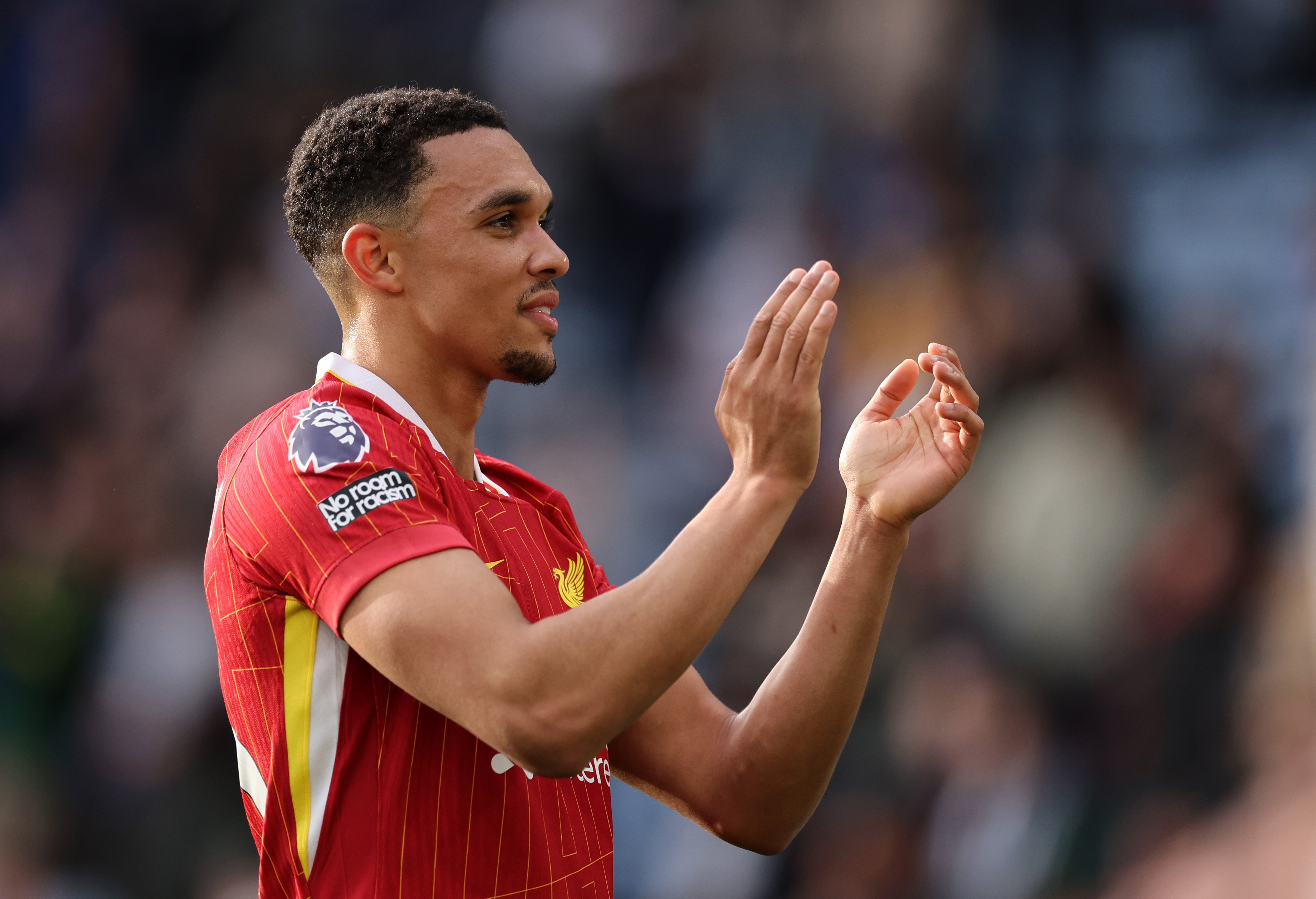FFT speaks to Arsenal hero Jack Wilshere: "It’s been a while since I’ve enjoyed football…"
Jack Wilshere retires at 30 as an Arsenal cult hero who electrified as a teen – but as he tells FFT, it's not always been plain sailing
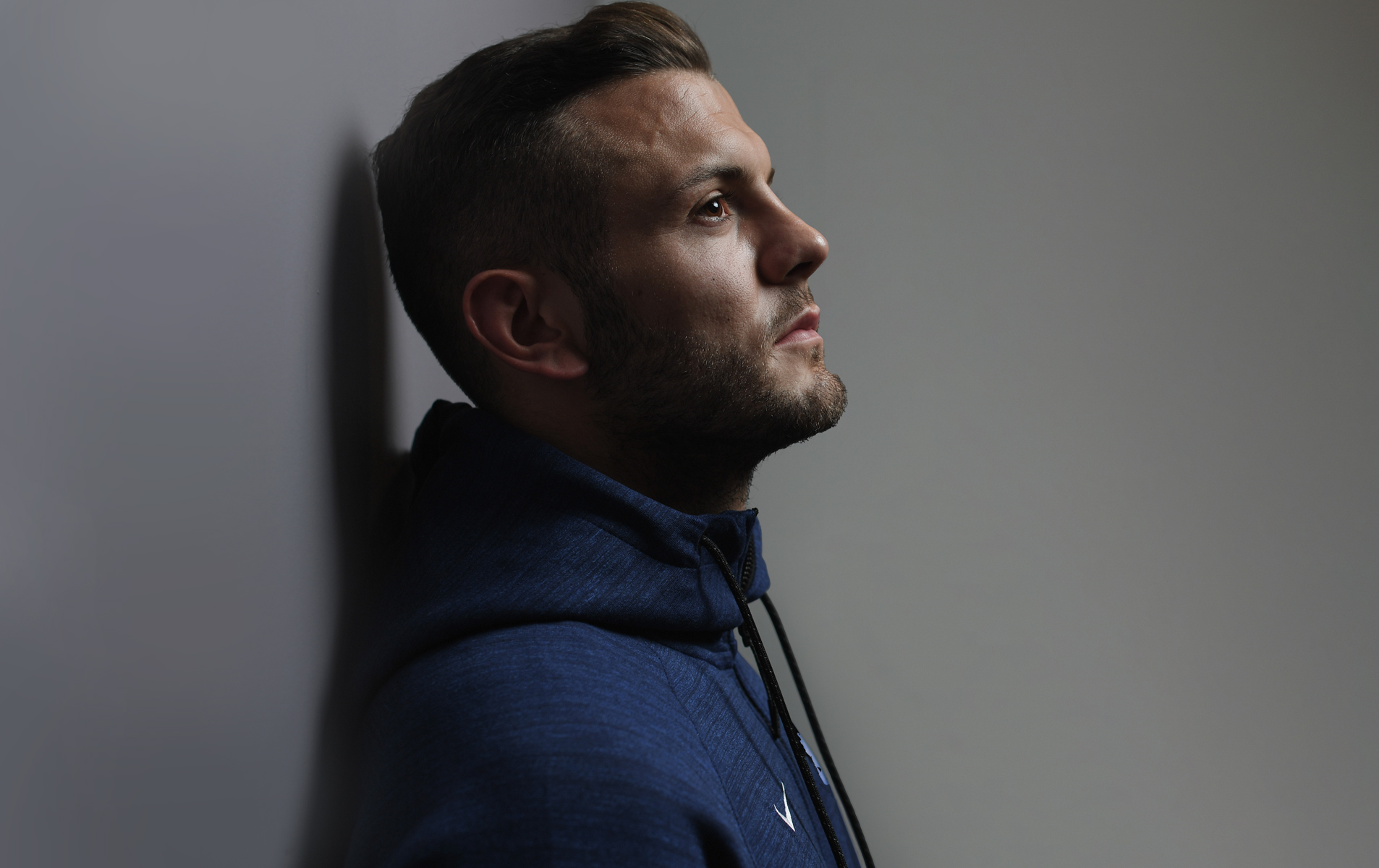
This piece on Arsenal hero Jack Wilshere was originally in FourFourTwo magazine. Subscribe now!
The tunnel can feel lonely. It’s a place for reflection before a match, as you tune out the clink of studs in the darkness and rumble of expectation from outside. It’s lonelier still if the opponents you’re sharing it with are arguably the greatest side of all time.
In February 2011, Barcelona were the visitors in north London. Jack Wilshere was just 19 years old, breathing deeply, but already an Arsenal regular in a team full of 20-somethings. To his right, looking a little more relaxed, were seven World Cup winners in the opposition’s starting XI. That didn’t even include Lionel Messi, Ballon d’Or holder for the last two years, and who didn’t even swing a glance at Wilshere. You’d forgive the midfielder’s heart for racing a little quicker.
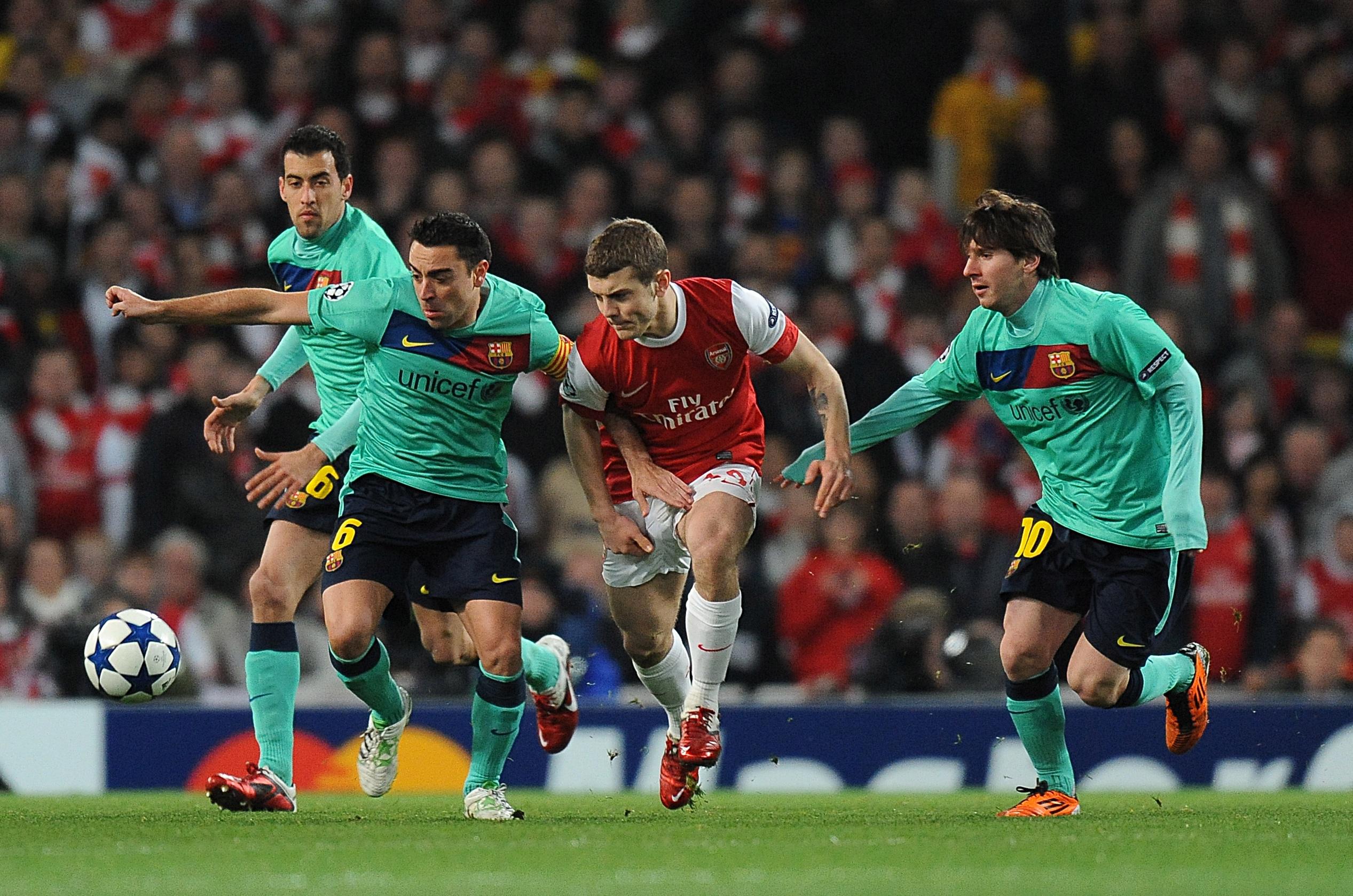
“I remember looking over at the likes of Messi, Xavi and Iniesta – I was so nervous,” Wilshere tells FourFourTwo, gazing into the distance as he returns to that famous night. “These were guys I’d seen win the Champions League just two years earlier. They were the best team in the world.”
That much was true, an understatement even – but as Wilshere discovered, the very best could be ruffled.
“There was a moment about 30 minutes in where I made a tackle on Andres Iniesta,” he recalls. “We were 1-0 down at the time and the whole crowd lifted. It really brought us back to life.”
Up to then, fear had seemed to squeeze all 10 of Wilshere’s team-mates too. Barça were toying with the young Gunners and had taken the lead through David Villa’s ice-cool finish, before that crunching tackle on Iniesta gave fans something to cheer. What followed in Arsenal’s resuscitation was one of the most iconic performances the Emirates Stadium has ever witnessed.
Get FourFourTwo Newsletter
The best features, fun and footballing quizzes, straight to your inbox every week.
Wilshere grew in stature with every touch, calling for the ball to carve open the Catalans. He was one move ahead every time Barça shifted a chess piece, slipping passes through his opponents’ defence or ghosting beyond half a dozen players just for fun. World-class footballers couldn’t get close enough to tug his shirt. It was a breathtaking display – the Gunners rallied to win 2-1. Pep Guardiola was seen passing on words of praise at full-time.
“They expected to win and weren’t happy when we came back,” smiles the man of the match, knowing exactly how good he was. “They were used to winning week in, week out, had gone 1-0 up and were dominating for the first 25 minutes.”
It was one of the greatest-ever individual performances in the Champions League. Sucker-punching this stellar Barcelona side never happened, but a star fell to Earth that night as north London swayed. It wasn’t only the capital that felt like it had been plugged into the mains, either: all of Europe knew Jack Wilshere’s name now. English football had a new prince; one who would surely define a national narrative – he just had to live up to that obvious promise.
The Arsenal ascension and Jack Wilshere's continued rise
A 2008 Nike advert directed by Guy Ritchie appeared to predict Wilshere’s rise. In the ad, we take the view of an unknown Sunday League player who scores a sweet free-kick and notices Arsene Wenger watching on the touchline. Before he knows it, he’s flung into the heat of a Premier League battle at Old Trafford alongside Cesc Fabregas.
The shake and pace of the camera work could have been based on Wilshere’s low centre of gravity and energetic style. In real life, Wenger – who had personally watched this Hitchin schoolboy play in the academy – gave his new pet project licence to roam. It had the feel of a mad scientist letting his creation wreak havoc across the lab, curious of the carnage he could cause. It was also entertaining; Ritchie’s ad made the point that the line between park and stadium is much thinner than you think. Wilshere’s ascension drilled it home.
“I was 16 when I had my first opportunity,” remembers the midfielder, still only 30, who made his Arsenal debut in 2008. “Obviously I’d been surrounded by people my age who weren’t getting a chance, so I realised I was doing something right. But I didn’t really think about how good I was, I wanted to improve. I was playing in the League Cup and wanted Premier League minutes. I wanted to push.”
Wenger happily obliged. “Arsene put me in the first-team dressing room at that age to give me the experience of what it was like to be around professionals, internationals, top players; to see how they do things every day. He always showed faith in me. Whether I had a bad performance or a bad injury, he’d give me all the time I needed – he’d stick by me.”
Gooners were only treated to flickers of the prodigy initially. Cup run-outs were regular as Wilshere flitted between first team and junior levels – he won the FA Youth Cup under Steve Bould in 2009 alongside Luke Ayling, Francis Coquelin and Jay Emmanuel-Thomas, netting goals in the semi-final and final. He’d burst into flame two seasons later with consistent minutes… and with them, that masterclass against Barcelona. The hype was high – but Wilshere insists he never thought much of it.
“I didn’t feel pressure, so much… I didn’t feel like I’d made it,” he reveals. “It was good being around big stars who’d played for their country for years, but I couldn’t stop – I had to keep pressuring them to fight my way into the team. I had an opportunity to show the manager what I could do.”
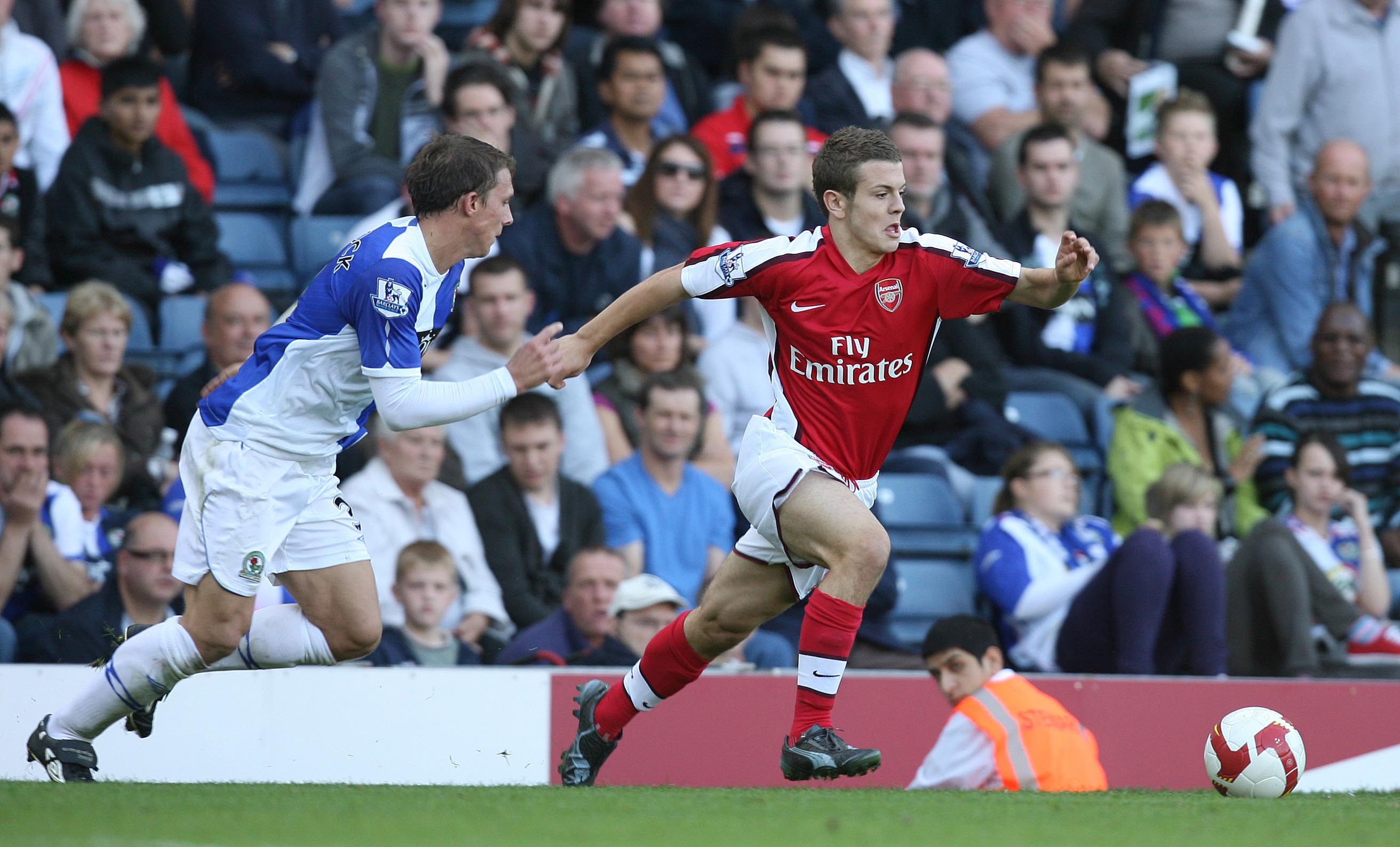
After all, that’s what his captain had done. Fabregas took the armband at 21 after rising through the same ranks as Wilshere – and the pair would end up playing in the same midfield in 2010-11, as Wenger remodelled his team with a fluid 4-3-3 system. Still, there was a burden on him, Fabregas and others to ensure that Arsenal’s trophy drought didn’t extend to a sixth year.
“Cesc was a guy I looked up to back then,” says Wilshere. “He started playing at a young age – he was 16. He was only five years older than me, heavily involved in the team, and he didn’t feel far away from us. Aaron Ramsey came to the club when I was 16, too – it was my first year in the first team and we became close. We went through similar experiences with injuries, coming back, and I still speak to him now – he’s doing pretty well in Italy and for Wales, and he’s a friend.”
Challenges for silverware fell flat, however. Arsenal slumped to fourth that season and spectacularly surrendered the League Cup to a Birmingham side that would later wind up relegated. It left a scar for those who’d grown used to seeing the Gunners winning.
“It honestly just made me more hungry to deliver success,” says Wilshere. “When I was in the academy, Arsenal won trophies all the time – I remember watching ‘the Invincibles’ when I was 12 and there was a buzz around the place. I used to dream of playing for the club when I was a kid, but we went nearly 10 years without a trophy.”
Pinball wizard
And just like that, breakout preceded burnout. England manager Fabio Capello had called Wilshere “the future”, suggesting he would even build his Three Lions side around him – and that was before the teenager’s virtuoso performance against Barça. When Fabregas returned to Catalonia in August, meanwhile, his young protégé was touted for the Arsenal captaincy. He wasn’t even 20 yet.
Fate had other ideas, though. Wilshere had made 49 Arsenal appearances in 2010-11 before a stress fracture suffered in pre-season ruled him out of the next campaign entirely.
“Yeah it’s difficult, but every footballer gets injured or has hard times,” shrugs Wilshere, shuffling in his seat. “It’s natural that you’re going to have some tough moments.”
That’s putting it mildly. This first ankle injury ruled Wilshere out for more than a year; from there, the midfielder’s development became increasingly staccato. These days, does he perhaps downplay quite how seriously those absences affected him?
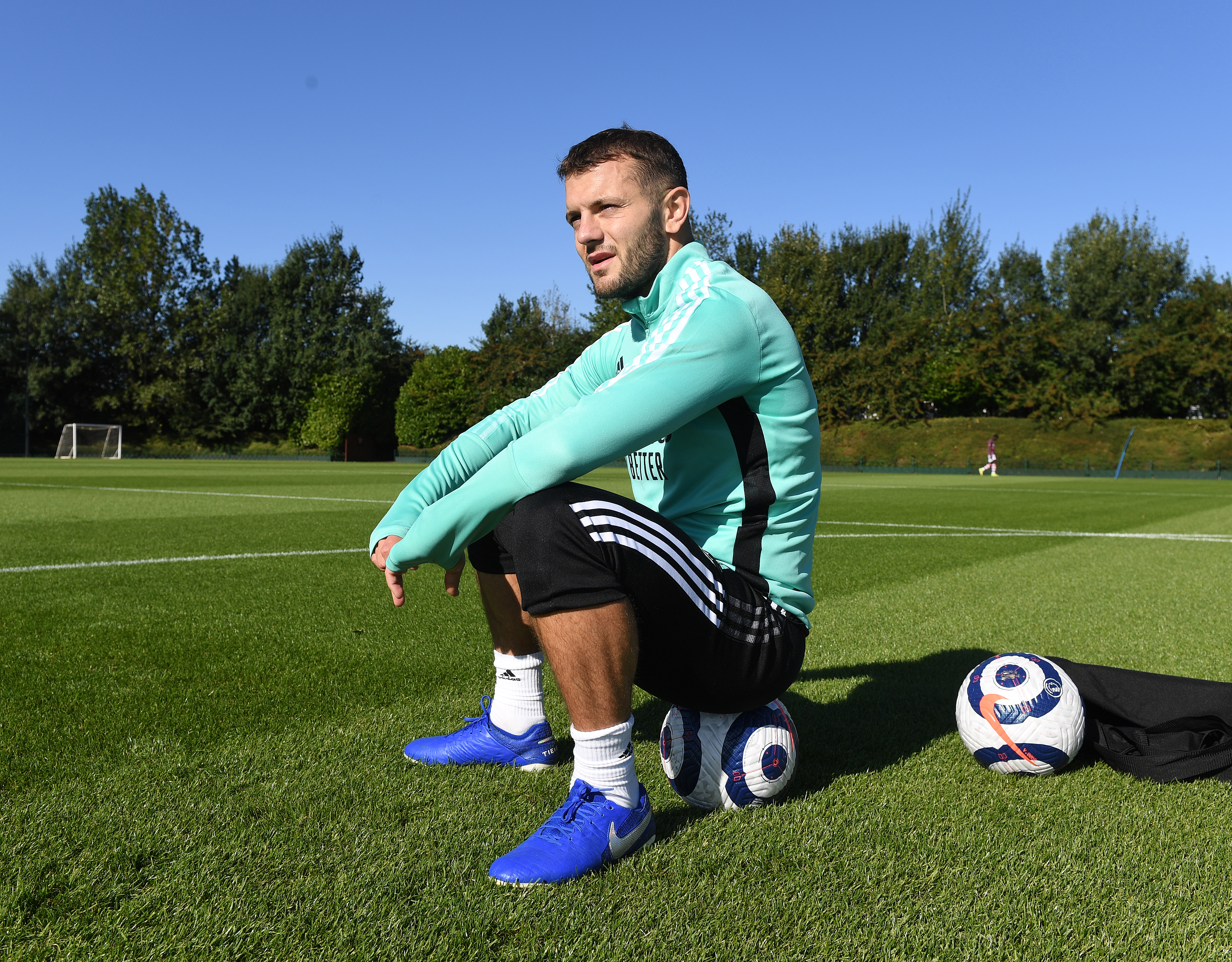
“Oh, the worst place to be for a footballer is stuck in the physio room when everyone’s going out to train,” he says. “It’s awful when everyone’s going out to play and you’re only going to watch the game.”
And amid rumours that he was forcing himself back too soon, was he frustrated that coaches would wrap him up in cotton wool every time he approached fitness again? “Sometimes, yeah,” confesses Wilshere, taking a second to think about his answer. “When you’ve played a good game and the next week the boss wants to rest you because you’ve played too much football…” He wrinkles his nose slightly. “To be honest, I’ve not had much of that.”
You can understand why Wilshere may feel uncomfortable recalling his traumatic injury history – or simply not want to dwell on those days – but FFT gets the impression he doesn't want to use that as an excuse for where his career might have gone, either. After years of people bemoaning his countless hours on the treatment table and what might have been, the man himself isn’t keen on adding his own voice to the chorus. Frankly, he seems fed up with that narrative.
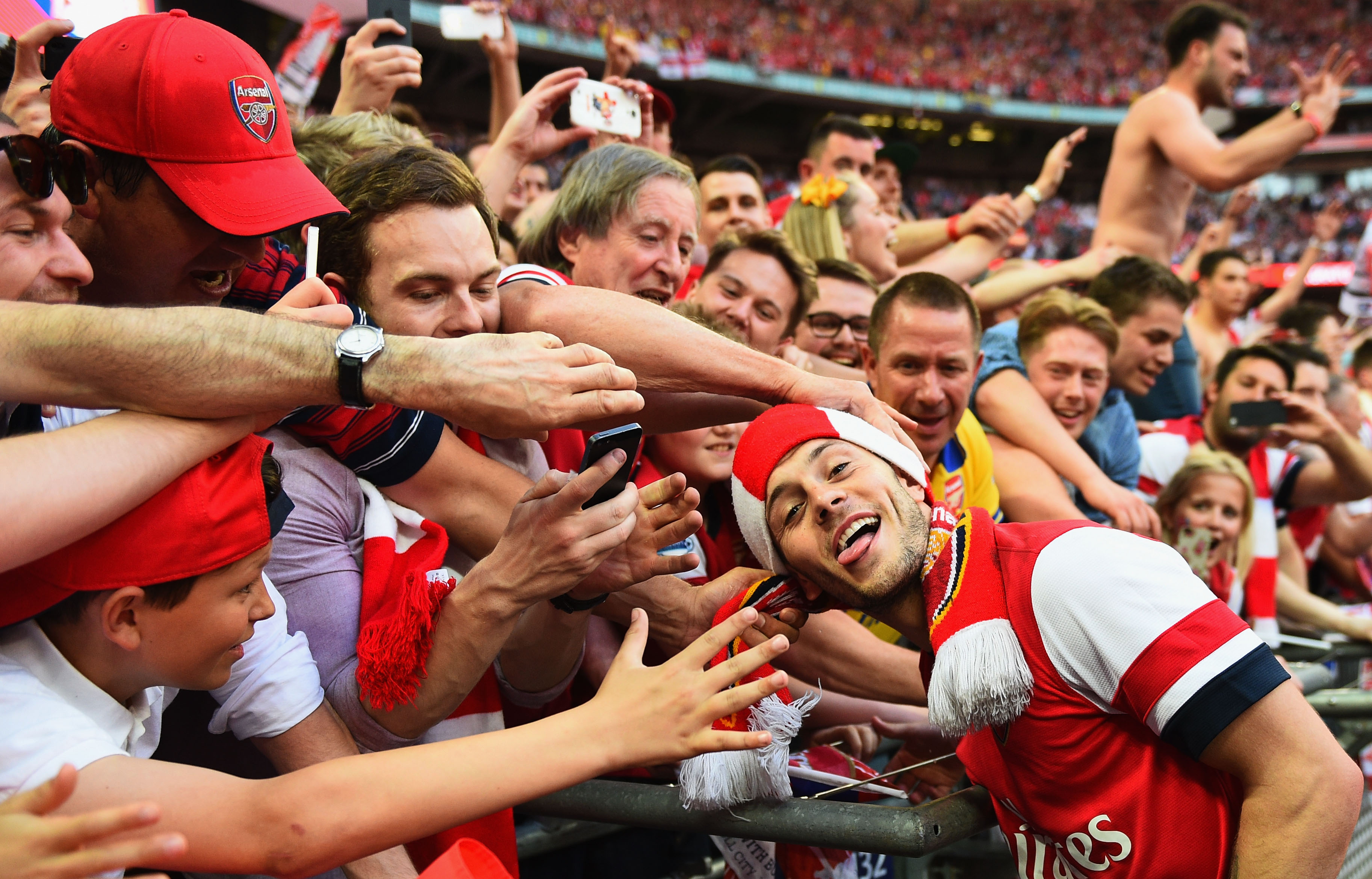
That’s hardly a surprise, though: in the five seasons that followed his breakout campaign, Wilshere made fewer than 100 appearances for Arsenal. Instead, it was Ramsey who recovered from serious injury to become a fulcrum in his absence, thriving with Mesut Özil and Santi Cazorla.
Still, he often glittered when he was on the pitch. It’s easy to forget that Wilshere proved a key figure for England under Roy Hodgson, scooping six man-of-the-match awards in seven games during Euro 2016 qualification, and won back-to-back FA Cups with Arsenal in 2014 and 2015.
“The final against Hull [in 2014] was awful to be involved in,” remembers Wilshere of the match that gave Wenger’s side their first trophy for nine years. “We went 2-0 down in the opening 10 minutes, then Santi scored an unbelievable free-kick. At the time, no one appreciated it because we just had to get the ball and bring it back to halfway.”
Jack Wilshere - Arsenal vs Norwich City, 2013pic.twitter.com/m8twZK8x7SJune 17, 2020
Incredibly, Wilshere didn’t even appreciate his wonder strike against Norwich that term, when he finished off a series of deft flicks to score one of the most beautiful team goals in Premier League history. He smiles now at the mention of that pinball move which was the BBC’s Goal of the Season.
“We did that sort of thing a lot at training,” he smiles. “It just happened in the moment, but there were so many drills where we’d do quick touches around the penalty box, putting somebody in. Obviously, all the guys I played with, that was their style of play. We were at our best when we rotated with quick passes.
“At the time I didn’t grasp quite how good it was, since we worked on that kind of thing so often. It was only after when everyone was talking about it that I knew it was special.”
"It was hard to walk away"
From there, sadly, fortune wouldn’t smile on Wilshere. That November, an ankle ligament injury that was set to keep him out for three months sidelined him for almost five. He did at least retain his BBC Goal of the Season title thanks to a rocket against West Brom on his 100th Premier League outing.
Then, on the eve of the 2015/16 campaign, a broken fibula – initial diagnosis: a matter of weeks – required surgery and restricted him to just three Arsenal appearances all season.
The breaks were cruel, very literally. So, in August, Wilshere signed for fellow top-flight team Bournemouth on loan in the hope of regaining momentum under manager Eddie Howe – an empathising figure who’d retired at 29 due to his own crippling injury problems.

The sea air seemed to do Wilshere good. He started regularly, hoping to play himself back into influence at Arsenal, and enjoyed Bournemouth’s close-knit atmosphere. But the mood was sterner when he returned to London Colney, with the Gunners no longer a Champions League club after finishing fifth and Wilshere a year away from his contract expiring. The academy graduate was told he was free to go.
“Even when Arsene told me I could leave, I always knew I had his trust,” says Wilshere of that summer in 2017. “In my head, that’s when I realised I might not be with Arsenal forever. So I got fit, fought my way into the team and was offered a deal. In my younger days, I’d never even thought about leaving.”
Wilshere was an intermittent bright spark in Arsenal’s faltering season, Wenger’s last as their manager. And yet, when the No.10 was eventually offered what he’d worked so hard for, he turned it down.
“It was the toughest decision of my career,” he admits. “When Arsene left, the club didn’t announce the manager and it dragged on. At the start of the year, I thought I was going to see my contract out and leave, so it was hard to walk away.”
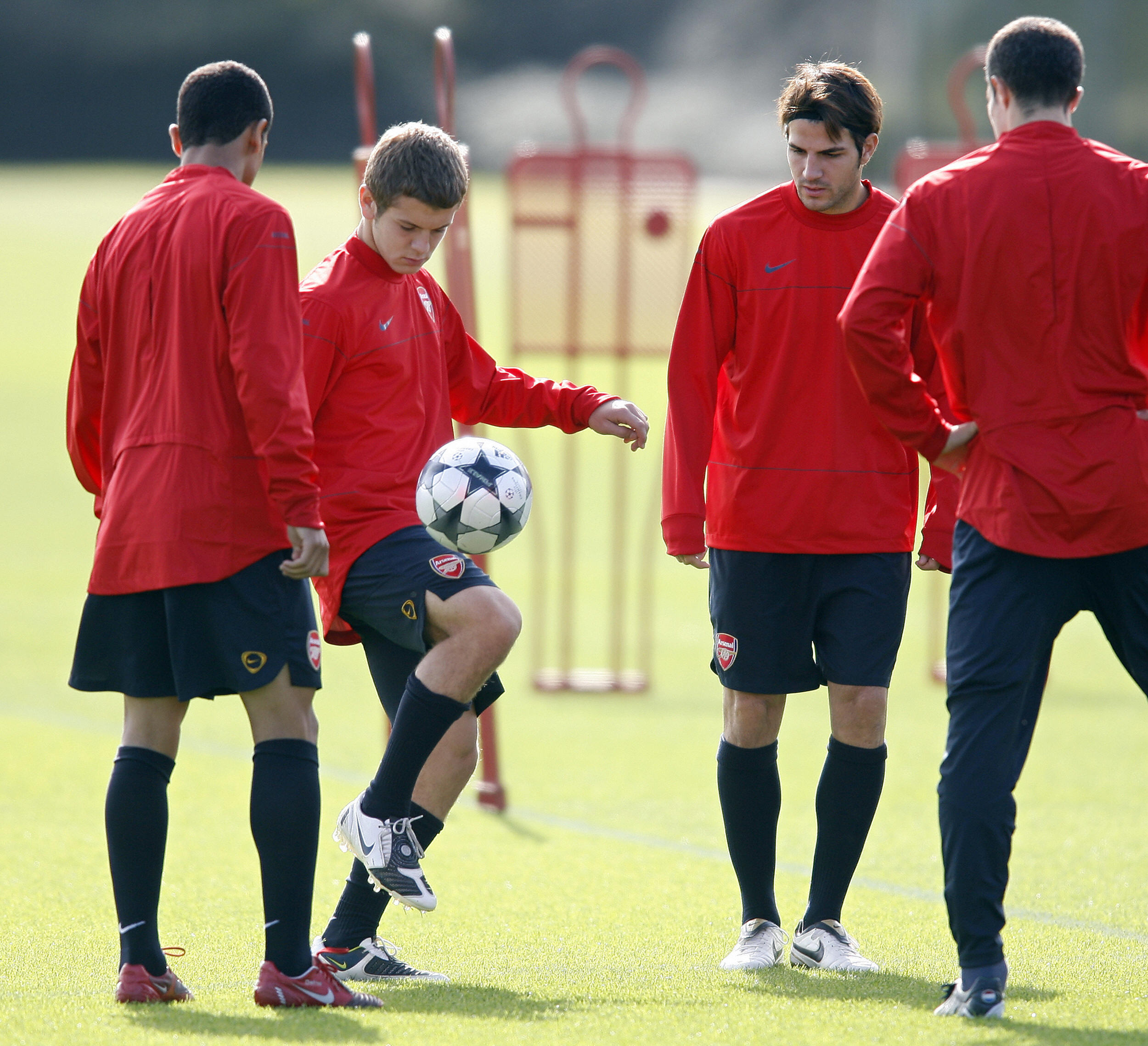
New gaffer Unai Emery told Wilshere he’d honour the new deal given to him by Wenger – but that he didn’t see a future for him at the Emirates. Wilshere said thanks but no thanks. “When a new manager comes in and says, ‘You’re not in my plans’, that’s the right time to leave,” he says.
Since then, lightning has struck twice more. A fresh start under Manuel Pellegrini at West Ham ended sooner than expected after the Chilean was replaced, with Wilshere finding himself a free agent again during lockdown. In January, a short-term deal took him back to the south coast and Bournemouth, where he featured semi-regularly en route to their play-off defeat against Brentford.
“If you’d told me as a kid that I’d play one game for West Ham – the club I supported growing up – I would have taken it, so I can’t regret going,” says Wilshere, looking to clarify comments he made this year that he should never have left the Gunners. “But sometimes when you’ve been somewhere for so long, it’s difficult to adapt to something else. I think that’s why I struggled a bit at West Ham. Of course, Pellegrini left and David Moyes came in, and he had a different style. Moyesy was great with me, though, and honest. I enjoyed his training and you can see what a good job he’s doing. I wish them all the best in Europe.”
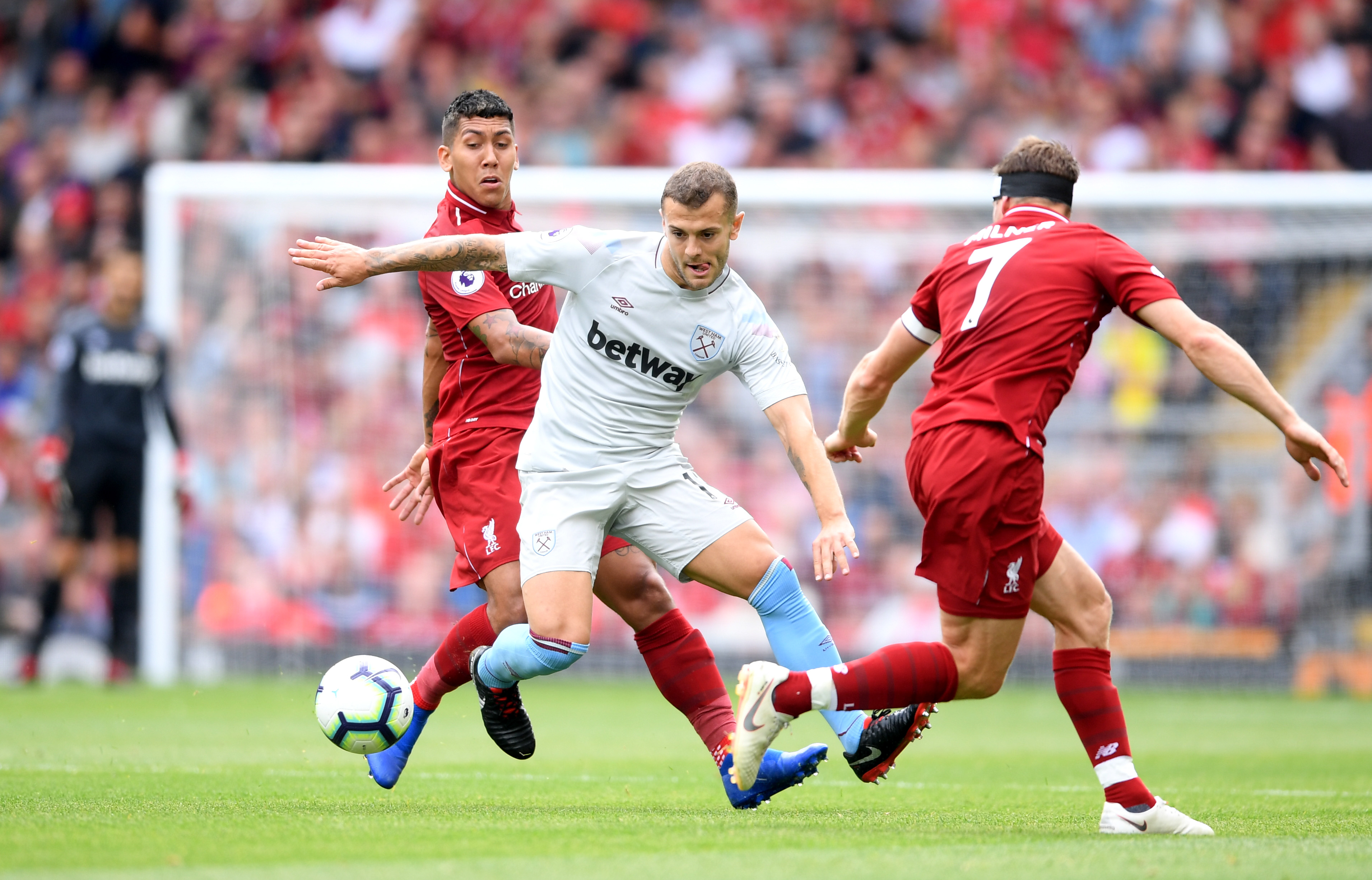
Then, he was on his own again. Wilshere had been training alone since becoming a free agent last summer, and finding a new club became particularly hard in post-pandemic Britain. That lonely tunnel before the Barça game had come 10 years ago, by this point.
But where Wilshere would have spent those future years of development in midfield, he was instead stunted by pain; each time, his body getting a little weaker and a little older. He began training with Arsenal in October – merely to keep his fitness up, do his coaching badges and wait for an opportunity. Last September, a move to Serie B side Como was blocked because of his non-EU passport. Eventually, he took a leftfield turn to Denmark.
“I think my next club needs to be the right fit for me in terms of style of play – but also style of the league,” he explained to FFT, a few months before going to his final club. “Somewhere that I’m going to be able to enjoy my football again. I had a good time last season back at Bournemouth, but being a free agent… the last six months have been difficult. It’s been a while since I’ve enjoyed football.”
Once upon a time, Wilshere was no ordinary wonderkid. He lit up arenas by beating the best as a one-man whirlwind. At his peak, he could tie opponents in knots trying to chase him. He had the passion and hunger to evoke roars from home fans; the grace and deftness to make a coach swoon. “Spanish technique, English heart,” as Wenger once said.
So where do you go when the world once watched your every move as a teen, but you feel rather more alone just a decade later? It's so terribly sad that such a talent has called it quits at 30 years old. For those who watched him, though, rarely has a wonderkid excited so many.
Jack was speaking on behalf of Utilita, who have partnered with the EFL to power one of Britain’s biggest junior football tournaments. For more information, head to www.efl.com
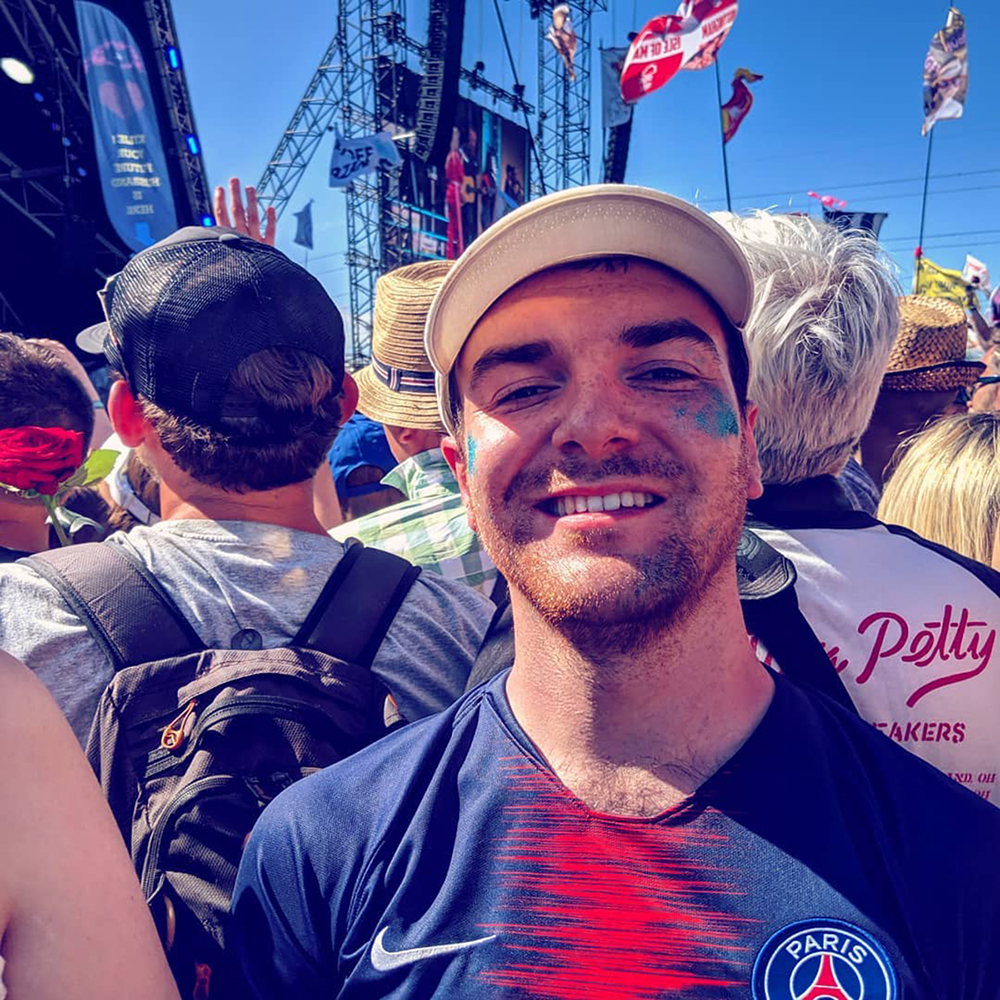
Mark White has been at on FourFourTwo since joining in January 2020, first as a staff writer before becoming content editor in 2023. An encyclopedia of football shirts and boots knowledge – both past and present – Mark has also represented FFT at both FA Cup and League Cup finals (though didn't receive a winners' medal on either occasion) and has written pieces for the mag ranging on subjects from Bobby Robson's season at Barcelona to Robinho's career. He has written cover features for the mag on Mikel Arteta and Martin Odegaard, and is assisted by his cat, Rosie, who has interned for the brand since lockdown.
